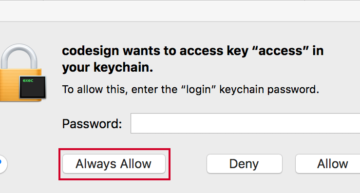
Should my company defensively register domain extensions?
 In response to my latest post about the new release of generic top-level domains (gtlds) or domain extensions, there is a looming question of whether or not a company should defensively register new domain extensions.
In response to my latest post about the new release of generic top-level domains (gtlds) or domain extensions, there is a looming question of whether or not a company should defensively register new domain extensions.
After all, one does not want their competition to get a step ahead of them should the release of the new domain extensions prove to be a success.
From .web to .shop to .news to .cars and the list of new generic top-level domain extensions goes on counting up to approximately 1900 gtlds, there is sure to be a wide range of opportunities for companies to capitalize on.
But let me state that this post is in no way telling you to go out and defensively register the upcoming 1900 or so new domain extensions.
The short answer, in my humble opinion, is no one should defensively register new domain extensions today. Then again, that answer could change some years down the road much like it did with .com domains going from free to paid to premium and beyond.
Once free, .com domains now are scarce and quite expensive to say the least which bring.
I only make this statement because no one knows how the internet will change as it is too early in its infancy of 20 years to predict and know what the next 20 years will bring.
Defensive registering extensions can also change based on the size of your company.
If you’re a mom-and-pop shop, defensively register new domain extensions for your company could very well drive you out of business.
Meanwhile, if you’re a conglomerate or a company with reasonable capital to for defensively register domain extensions on an annual basis, then you could easily register and renew hundreds or thousands of new domain extensions on an annual basis.
I’m not sure anyone knows for sure what will be the outcome of this grand event although recent history of the other 19 domain extensions outside of .com have not been as successful.
Keep in mind that those domain extensions were singular releases too.
At roughly 1900 or so being released over the next year and a half at 20 per week, I’m not too sure how this monumental online event will be a success.
Personally, I see it as a success for the domain registrars (1and1.com, GoDaddy, Network Solutions, etc.), but this leaves businesses holding the bag of useless new domain extensions and spending quite a bit of money on annual renewal fees.
As for the general public and their acceptance of the new extensions, my guess is that the general public will be quite confused by the end of all new domain extensions being released. Think about it.
There are currently 20 plus domain extensions in use today.
There is .net, .tv, .org, .biz and .info to name a few extensions. The most popular domain extension is .com.
Most internet users or average users of the internet equate the internet to .com and not .whatever.
None of the previously named domain extensions are anywhere near the popularity of .com nor do I think they will ever reach such a status.
More recently, .co and .me have come to the playing table with mediocre results behind well-funded marketing campaigns, being popularly used by startups until they prove their business model and make enough capital to purchase the .com version of their .co or .me domain extension.
But the real conversation to be had:
Think about how much and how many businesses have built their empire based on a .com domain extension.
Now why would a business, such as yours, want to start all over again reinvesting money into something not promised?
Again, only time will tell in terms of whether or not the general public will accept the domain extensions as common extensions and garner the power like the .com extension.
There will be a small few extensions that catch on fire, but .com is here to stay for now until the next major technology advancement to move the internet forward leaps and bounds.
In closing, I’m not saying the release of new domain extensions will be a complete failure, but it could be a very costly mistake for businesses that are only in it for defensive registering.
So consider yourself warned, be wise when defensively registering new domain name extensions that may never see the light of day or search in a general sense.














[…] You also need to keep in mind if your domain registrations require being defensive in order to reduce fraud and legal issues. Defensive domain registration basically refers to registering your primary domain name in various extensions. You need to find out if it will really be worth it for you. How to decide if it’s apt for you or not? Here’s how: Should my company defensively register domain extensions? […]